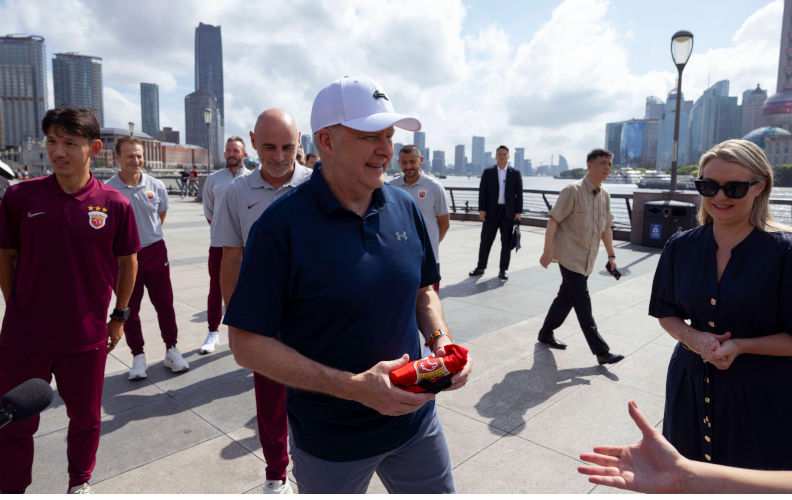How deals are trumping port dispute on Australian PM Albanese’s China visit
July 20, 2025
Source says the two sides have decided to step back from Darwin Port controversy amid trade tensions with US.
Beijing has set aside major disputes with Canberra and instead filled Australian Prime Minister Anthony Albanese’s six-day visit to China this week with a slew of trade and investment deals, a move analysts said was an effort to find common ground amid trade tensions with the United States.
The deals include the potential widening of access to the Chinese market for Australian farm produce and coal, co-operation in the digitisation of the financial sector, investment in greenfield projects and potential tariff cuts for Australian agricultural exports, according to a source with knowledge of their content.
There has been no mention of any discussion on the future of Darwin Port, which the Australian Government wants to take back from a Chinese company on national security grounds, with the source saying the two sides had decided to step back from the controversy.
Albanese’s visit, which has included meetings with President Xi Jinping and Premier Li Qiang, began in Shanghai on Saturday and ended on Friday, with details of the deals expected to be released.
According to an official readout from Xinhua, Li raised Australian scrutiny of Chinese investments in two hours of talks with Albanese on Tuesday, asking for “a fair, open and non-discriminatory business environment” for Chinese investors.
Li did not explicitly mention Darwin Port.
Landbridge Group, a private company based in east China’s Shandong province, was granted a 99-year lease on the port in 2015. Despite a warming of bilateral trade relations in recent years, the planned buy-back remains a major point of contention between the two countries.
“Both sides decided to temporarily hold back on the controversy and resort to further discussions,” the source said, adding that they wanted instead to emphasise their complementary economic structures and future co-operation.
The source added that ongoing decarbonisation projects in the steel industry and the planned establishment of a clean technology co-operation centre in Perth would fit in well with the Albanese Government’s promotion of green transition initiatives.
Australia China Business Council national president David Olsson, who joined Albanese’s business delegation for a CEO Roundtable meeting in Beijing, said that there had been “a clear shift from transactional diplomacy to strategic dialogue” between China and Australia.
“That gives business more confidence to invest in long-term engagement,” he added, noting that the business community had a sense that “dialogue is back on track, and that there is political will on both sides to keep it there”.
China and the European Union will have a summit meeting in Brussels next week to address bilateral trade issues, and Beijing will engage in more negotiations with Washington early next month, when a 90-day tariff truce is due to end.
In 2015, Australia, a US ally with high trade exposure to China, became the first major developed economy to sign a free-trade deal with China. It now faces a 10% tariff on exports to the US, following US President Donald Trump’s announcement of revised tariffs for America’s global trade partners in early April.
Chinese investment in Australia increased by 41% last year, up from US$613 million in 2023 to US$862 million, according to figures in a report by KPMG and the University of Sydney that was released in March. The report said the mining sector saw “a significant increase” to A$1.12 billion (US$733.13 million) in 2024, from A$34 million in 2023, with the nine deals in the sector accounting for 86% of total Chinese investment.
The report said that despite the year-on-year increase, last year saw the third-lowest investment value and number of transactions since 2006 – ahead of only 2021 and 2023. The highest Chinese investment figure in that time was US$16.2 billion in 2008.
When touring the Great Wall on Wednesday, Albanese highlighted the importance of having a positive relationship with China.
**“**We’ll co-operate where we can, disagree where we must, but engage in our national interest,” he said. “Where there are differences, we’ll talk about them, but not be defined by them. And that is critical going forward.”
Republished from the South China Morning Post, 17 July 2025
The views expressed in this article may or may not reflect those of Pearls and Irritations.

